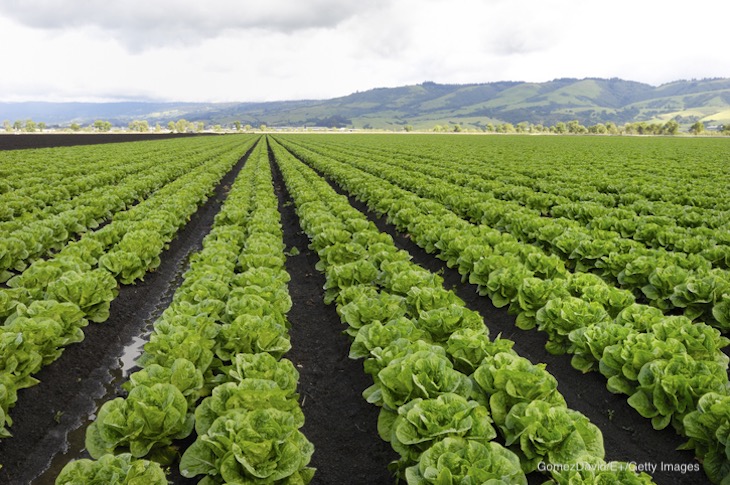Canada imposes import restrictions on romaine lettuce imported from one growing area in California again, after several outbreaks of E. coli O157:H7 illnesses linked to that product. The requirements target one geographical area in that state: the counties of Santa Cruz, Santa Cara, San Benito, and Monterey in the Salinas Valley.

Canada imports romaine lettuce from the Salinas Valley area in California during the months of September through December. Since romaine lettuce has been linked to many E. coli outbreaks over the past few years, it can be considered a risky food, especially for people who are at higher risk for complications from this type of infection.
The Canadian 2020 import restrictions seemed to work last year. There were no outbreaks linked to or associated with romaine lettuce in Canada in 2020, while in the U.S. there were three “mystery” E. coli outbreaks that may have been associated with romaine. Those outbreaks were never solved.
The Temporary Safe Food For Canadians license conditions for the importation of romaine lettuce originating from the U.S. are in place from September 30, 2021 and December 31, 2021. Importers must declared that the product does not originate from those counties, and they must submit an attestation form and Certificate of Analysis for each shipment to “demonstrate that the romaine lettuce does not contain detectable levels of E. coli O157:H7.”
Romaine can be imported into Canada from California if a Proof of Origin Statement is included, along with the attestation form that sampling was conducted according to the temporary SFC license conditions. If a Proof of Origin form is not available, the attestation and a Certificate of Analysis must be provided. And the lettuce must have been handled by a certified member of the California Leafy Greens Marketing Agreement (LGMS). In addition, romaine lettuce grown in Arizona must also have been handled by a shipper that is a certified member of the LGMA.
Romaine from the Salinas growing area in California was linked to several E. coli O157:H7 outbreaks in the U.S. and may have been linked to a similar outbreak in Canada. Lettuce from the Yuma area in Arizona was linked to a large and deadly outbreak in the U.S. in 2018, and may have been linked to a Canadian outbreak that occurred at the same time. Canada first put import restrictions on American-grown romaine lettuce in 2020 after these outbreaks.
Importers have two options for sampling: either finished-product sampling, which is conducted after all post processing and handling steps are complete; and pre-harvest sampling, which is conducted in the field no more than seven days before harvest.
These conditions apply to all U.S. import shipments of romaine lettuce, including that sold in bags or bulk, or combined with other food items such as a bagged salad mix, in a fresh state. It applies to all varieties of mature and baby romaine.
These requirements are based on the Safe Food for Canadians Regulation and Section 4 of the Food and Drugs Act. That Section states that no person can sell food that has in or on it any poisonous or harmful substance, is unfit for human consumption, or was manufactured, packaged, or stored under unsanitary conditions.




